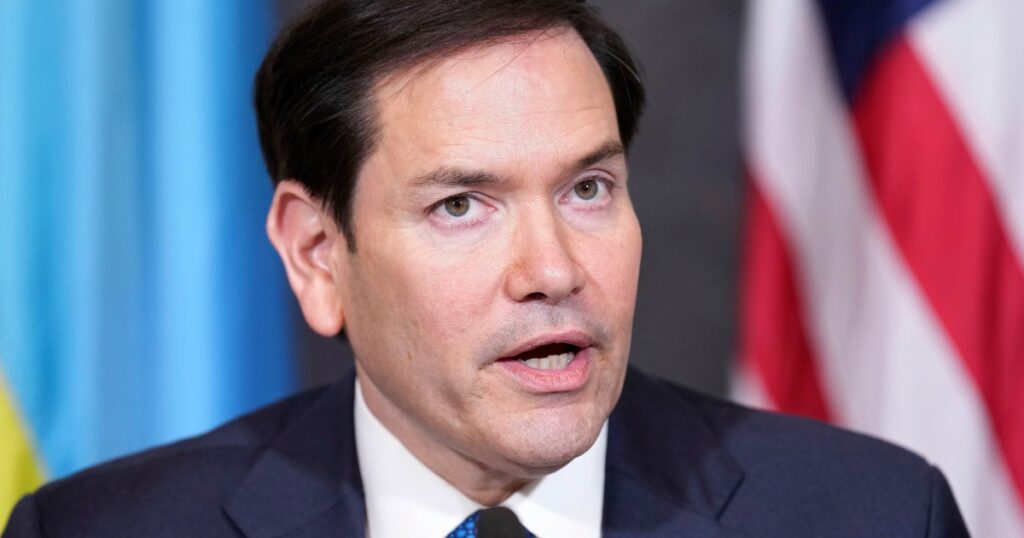US Moves to Curtail Chinese Student Visas Amid Rising Tensions
The United States is set to intensify efforts to revoke visas for Chinese students, particularly those with ties to the Chinese Communist Party or engaged in studies related to sensitive strategic fields, according to Secretary of State Marco Rubio. This announcement signals a significant escalation in the current US government’s approach to international students from China, amidst ongoing geopolitical frictions.
Background of US-China Educational Relations
Historically, China has been the second-largest source of international students in the United States, trailing only India. However, recent years have seen a decline in Chinese student enrollment, attributed to escalating diplomatic tensions and the disruptions caused by the COVID-19 pandemic. During the 2023-24 academic year, approximately 277,000 Chinese students studied in the US, a notable decrease from over 370,000 in 2019. Conversely, the number of American students studying in China has also diminished, dropping from around 15,000 in 2014 to roughly 800 last year.
Policy Changes and Enforcement Strategies
Rubio indicated that visa policies will be revised to enhance scrutiny of future applications from individuals connected to China, including those with links to the Chinese government or military. The US State Department, in collaboration with Homeland Security, will actively pursue the revocation of visas for students deemed to pose national security concerns. While the specifics of what constitutes “connections” to the Chinese Communist Party” remain vague, the move appears aimed at curbing espionage and intellectual property theft.
China’s Response and Diplomatic Tensions
In response, China condemned the US measures, describing them as “unjustified” and driven by ideological and security pretexts. Mao Ning, spokesperson for China’s Ministry of Foreign Affairs, accused the US of hypocrisy, arguing that such actions undermine the country’s proclaimed values of freedom and openness. She warned that these policies could further damage America’s international reputation and credibility.
Understanding the Chinese Student Demographic
Chinese students constitute a significant portion of the international academic community in the US, with many enrolled in top-tier universities in Beijing and other major cities. Studies have shown that a large percentage of students in Beijing, often over 75%, join the Chinese Communist Youth League during their undergraduate years. Research from 2014 suggests that younger party members often cite personal development, career advancement, and social influence as motivations for their involvement.
Implications for US-China Scientific and Technological Collaboration
The US and China are engaged in fierce competition over advancements in critical fields such as biotechnology, quantum computing, and artificial intelligence. The new visa restrictions could hinder collaborative efforts and the exchange of innovative ideas, which are vital for scientific progress. Experts warn that restricting access for Chinese students-who are often among the brightest minds-may cause long-term setbacks in technological development and research innovation.
Assessing the Impact of Political Loyalty on Student Mobility
There is ongoing debate about the extent to which Chinese students are influenced by political affiliations. While some argue that the Chinese Communist Party actively recruits students from elite universities, others believe that many students make pragmatic decisions based on career prospects and educational opportunities. John Burns, a scholar specializing in Chinese politics at the University of Hong Kong, notes that the US’s approach may be overly cautious, driven by paranoia rather than concrete evidence of widespread ideological infiltration.
Potential Consequences for Global Scientific Progress
Burns emphasizes that a significant reduction in Chinese students could hamper scientific and technological advancements in the US. He advocates for a merit-based approach to recruitment, focusing on talent and expertise rather than ideological considerations. Such a strategy would ensure that the best minds continue to contribute to global innovation, regardless of their nationality or political background.
Conclusion: Navigating Diplomatic and Educational Challenges
The US’s renewed focus on scrutinizing Chinese students reflects broader geopolitical tensions and concerns over national security. While protecting intellectual property and strategic interests is crucial, policymakers must balance these priorities with the benefits of international academic exchange. Maintaining open channels for talented students worldwide remains essential for fostering innovation and global cooperation in an increasingly interconnected world.
By adopting a nuanced approach, the US can safeguard its interests without undermining the vital contributions of international students, especially those from China, to its scientific and educational landscape.

